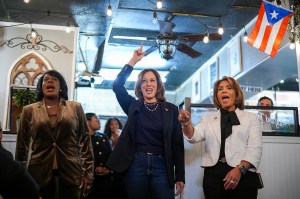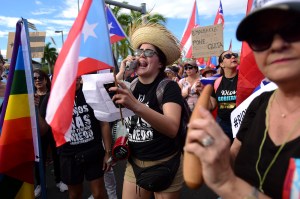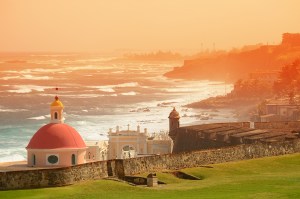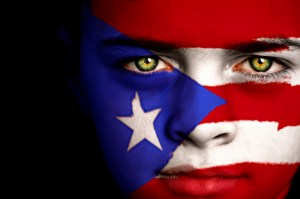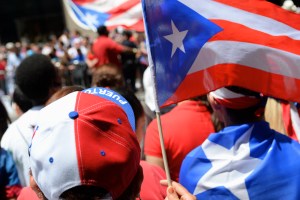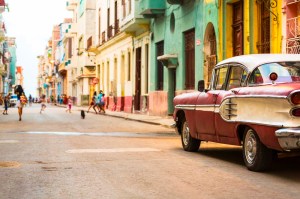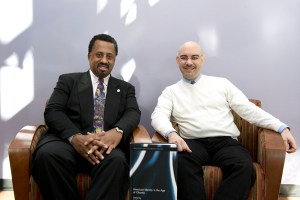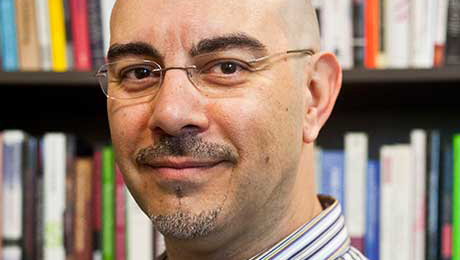
Amilcar
Barreto
Professor of Cultures, Societies, and Global Studies and Interim Director of the International Affairs Program
Amílcar Barreto in the Press

Bad Bunny Is the Most Popular American on Earth. Why the MAGA Backlash?
“If you’re thinking about music culture right now, he’s at the top of the summit,” said Amílcar Barreto, a political science professor at Northeastern University.

Republican Senator Blast NFL Booking ‘Second-Rate’ Bad Bunny for Super Bowl
Amílcar Barreto, a political science professor at Northeastern University, told Newsweek: “If you’re thinking about music culture right now, he’s at the top of the summit. But by doing it in Spanish, he’s challenging the idea that English is the only legitimate language in American life. That’s why it reads like a provocation—it’s not just music.”

Bad Bunny’s Super Bowl backlash part of history for Latino performers
The anger about the Bad Bunny stems from ignorance that Puerto Ricans are U.S. citizens and that he’s an outspoken Latino artist, Amílcar Antonio Barreto, Northeastern professor of Cultures, Societies, and Global Studies, told Axios.

Donald Trump Faces Puerto Rican Fury in Pennsylvania
Amílcar Antonio Barreto, a Northeastern University professor whose work has focused on Puerto Rico and Latinos in the U.S., told Newsweek that Trump’s “anti-Latino rhetoric in general, and utter disrespect for Puerto Ricans in particular, is nothing new.”

For Puerto Rico’s earthquake families, trauma continues thousands of miles from home
“Since you don’t have people dying now, there is not the same sense of urgency,” said Amílcar Antonio Barreto, a professor at Northeastern University.

Third Puerto Rico Governor Since Friday Steps Up Reluctantly
“The real wild card we have at the moment is we’re not sure how long she wants to stay in office,” said Amilcar Antonio Barreto, a political scientist at Northeastern University in Boston who studies Puerto Rico.
Mic
America shares the blame for the “massive debt” in hurricane-stricken Puerto Rico
The debt itself isn’t necessarily the dominant issue. It’s the debt combined with a failed economy, which then leads to high rates of poverty and unemployment along with very small tax base to keep the island afloat. “First and foremost, it was decades of Puerto Rican politicians abusing Puerto Rico’s credit card,” Amílcar Antonio Barreto, […]

Slow arrival of hurricane aide revives statehood debate in Puerto Rico
“We don’t know if these folks are overwhelmingly pro-statehood, or pro-commonwealth…. We have no idea who’s leaving the island,” said Amilcar Barreto, an associate professor of political science, international affairs and public policy at Northeastern University.

Trump called San Juan’s mayor a weak leader. Here’s what her leadership looks like
But that is a far cry from being a tool of Democrats, said Amilcar Barreto, a Puerto Rican political expert at Northeastern University. “Complaining about people on the island not having food, electricity, water is not partisan. That’s just basic human necessity.”

Trump defends response to devastation in Puerto Rico, promises visit
Amilcar Antonio Barreto, an associate professor at Northeastern University who specializes in Puerto Rico politics, accused the Trump administration of treating the territory with an attitude of “benign neglect” and criticized the president for failing to acknowledge the humanitarian crisis unfolding there in the aftermath of Maria.
